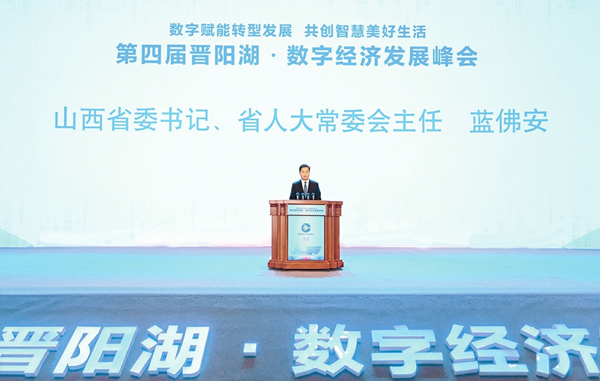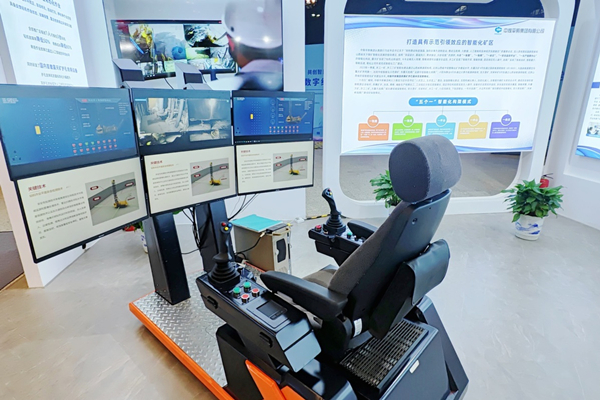
Lan Fo'an, Party chief of Shanxi province, addresses the opening ceremony of the 4th Jinyang Lake Digital Economy Development Summit in Taiyuan, Aug 23. [Photo/Shanxi Daily]
The 4th Jinyang Lake Digital Economy Development Summit opened in Taiyuan, capital of North China's Shanxi province, on Aug 23.
Some 1,000 participants, including officials from national ministries and provincial government departments, industry associations, universities, research institutes, financial institutions, and enterprises are attending the three-day summit.
During the opening ceremony, attendees discussed the cutting-edge directions, opportunities, and prospects of digital technology and digital economy. Liu Quan, deputy chief engineer of the China Center for Information Industry Development, announced the release of the "China Digital Industry Development Research Report 2023".
Based on the theme of "empowering transformation with digitalization, creating a smart and better life together", the summit aims to build a national exchange platform for digital economic development and accelerate the comprehensive development of the digital economy in Shanxi.
The summit takes place offline at the Jinyang Lake International Conference Center as well as online, with activities such as the opening ceremony, a keynote forum, 16 sub-forums, a digital economy exhibition, and related industry events.

An unmanned drilling rig system simulation console is on display at the digital economy exhibition of the 4th Jinyang Lake Digital Economy Development Summit. [Photo provided to goshanxi.com.cn]
Notably, three sub-forums are held in the cities of Taiyuan, Datong, and Jincheng, showcasing Shanxi's development environment that emphasizes openness, cooperation, and win-win collaboration.
Additionally, the digital economy exhibition is held online and offline from Aug 23 to 25. It displays the core industries of the digital economy, digitalization in characteristic professional towns, the integration of the coal industry and digital technology, industrial internet applications in key industrial chains, and the supply of basic information technology services.
In recent years, Shanxi has viewed the digital economy as a core engine for its transformation and development.
Currently, the province has built 85,000 5G base stations, completed the construction of eight industrial internet identification and resolution second-tier nodes, and connected them to the national top-level nodes.
Moreover, it has established 48 intelligent coal mines and 1,217 intelligent mining working faces. The digital control rate of key industrial processes in industrial enterprises above designated size – those with annual sales revenue of more than 20 million yuan ($2.75 million) – has reached 59.6 percent.
